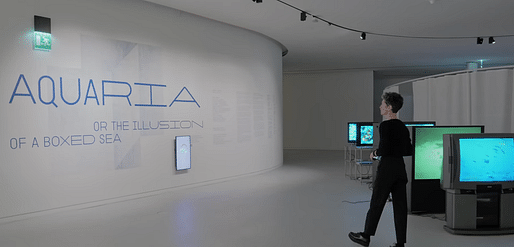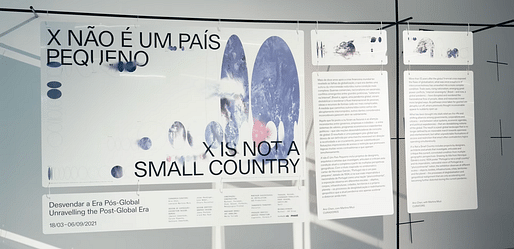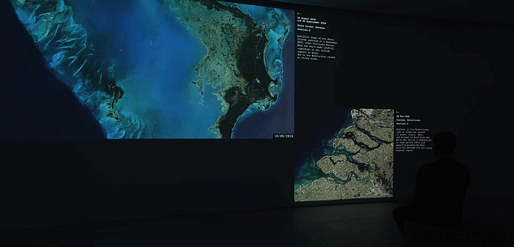
The Museum of Art, Architecture, and Technology (maat) launched in October 2016 as an international design institution championing discourse and creative practice to "inspire new understandings of the historical present and an empowering engagement with the common future." The riverfront museum, designed by AL_A (Amanda Levete Architects), has focused its efforts towards "fostering critical discourse and creative practice that inspire new understandings of the historical present and an empowering engagement with the common future."
In addition to its exciting 2021 Spring line-up, maat also focuses on climate action topics. With plans for investing in exhibitions and public programming that emphasize this initiative, the museum has developed the Climate Collective, a year-long project chaired and curated by T.J. Demos.
In preparation for 2021, new Covid-19 health and safety protocols are allowing museums to welcome back visitors. With their re-opening, maat presents two group exhibitions and one large-scale installation. Beatrice Leanza, Executive director at maat, explains, "one important aspect of how these three projects compliment or speak to each other is they all somehow look the complexities that we find in the present. They also want to provide an overview and a form of tooling for navigating the present. [These exhibitions] are both speculative and research-based perspectives that tackle one important aspect of our current era, which is the breaking down or collapsing of systems of both order and control."
Below are image stills of the three featured exhibitions and a brief description of the project.

Exhibition description: Inaugurating the maat Explorations programme, the exhibition reflects on possibilities and new questions that the rethinking of our relationship with the marine world could come up against. Aquaria are devices that organise and represent marine life, they are complex systems which, in the paradigm of modernity and urbanisation, embody the transformation of Nature into Culture, thanks to the support of Technology and Capital.
Art, design and architecture serve here as speculative tools, highlighting how the modern idea of living outside of Nature has today become a paradigm to be deconstructed in order to contemplate a new form of situated knowledge that evokes new forms of solidarity and justice, adopting more than merely human perspectives.

Exhibition description: The exhibition includes 9 newly created projects by international practitioners working across design, architecture and art that investigate, articulate and critique the current, convoluted state of the global from multiple geographic perspectives. It explores our current post-global condition by observing at different scales —territories, cities, infrastructures, platforms, bodies, objects—the processes of de-globalisation and geopolitical realignment that have, in many cases, been accelerated and distorted in rapidly evolving cycles of flux and revision during the current pandemic.
Whether accessing an archaeology of mass traded objects between China and India, digitally traveling through the devastating effects of oil extraction in the Niger Delta, or immersing oneself in the intertwinement of migration, disenfranchisement, and post- colonial capital in the outskirts of Lisbon, the exhibition’s landscape of post-global observation is defined not by utopian notions of freedom and agency but fluctuations of access and restriction instead.

Exhibition description: Occupying the former “video room” and part of the foyer of the museum, this is a special commission by the Milan-based research and interaction design studio dotdotdot, developed with the scientific collaboration of the European Space Agency (ESA), the International Energy Agency (IEA) and the knowledge support of EDP (Energias De Portugal) Innovation and EDP Sustainability.
This 4-part installation is an unprecedented data-driven journey presented through graphic and digital wallpapers, animated videos and an interactive station that unpack and compare the energetic outputs of anthropic actions, relevant CO2 and GHG emissions and their annihilating effects on the life of the planet.
To learn more about the museum, its exhibitions, and the upcoming "Open/Closed Systems" maat's Spring Season-Opening Event on April 23 at 14:00-20:00 CET click here.
No Comments
Block this user
Are you sure you want to block this user and hide all related comments throughout the site?
Archinect
This is your first comment on Archinect. Your comment will be visible once approved.